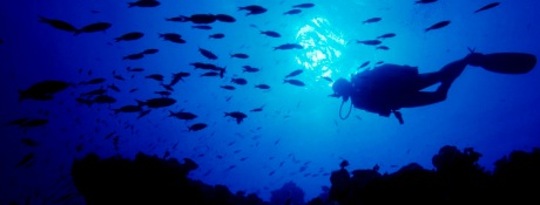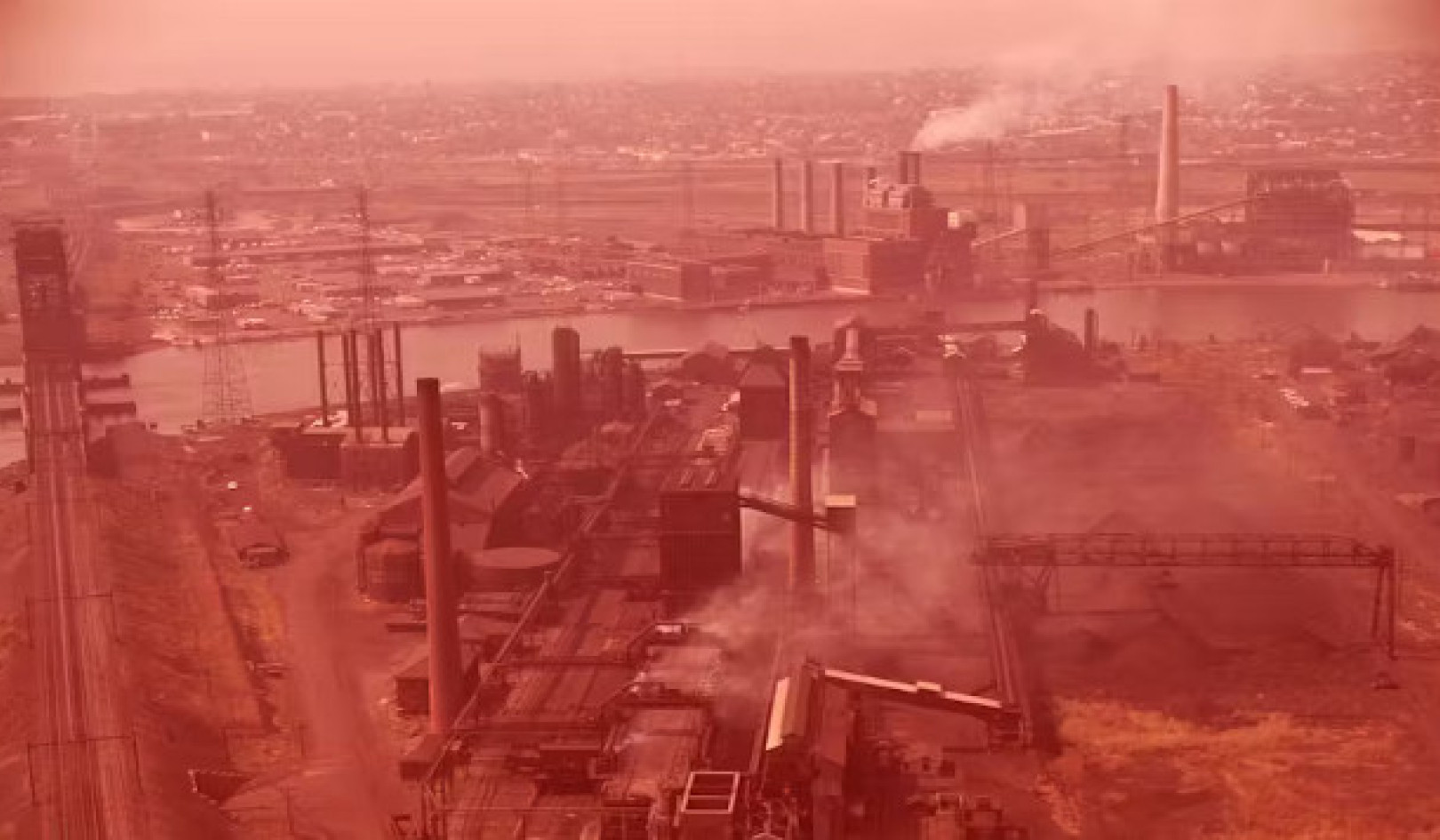
The deep sea is the largest habitat on earth and incredibly important to humans, but it faces many threats – from increased human exploitation to the effects of climate change. As this exploitation expands we need to decide to what extent we will try to conserve the oceans, and this is a decision that must be informed by what the oceans provide. This was the motivation for our study, published in the journal Biogeosciences.
One of the constant challenges faced by deep-sea researchers is the impression often held that the deep-sea is too unknown and remote to be important to humans. This makes it an uphill battle to explain why our research is of more than just scientific interest. The fact that the deep oceans are largely in international waters outside national jurisdiction means that its importance is truly global, because it is only at a planet-wide level that they can be properly managed.
We are on the verge of expanding the range of what we take from the sea: developments such as manganese nodule mining are closer to fruition, terrestrial supplies of rare earth elements are dwindling making the massive reservoirs under the ocean more attractive, and mining claims for massive sulfides, rich in elements used in electronics, are likely to start in the next year.
This is the time to discuss deep-sea stewardship before it is already underway. Already commercial fishing has expanded to encompass more species, taking more from the sea with ramifications for the entire marine ecosystem. We need to realize how these ecosystems are important to human society now, so that those who are beginning to harvest yet more resources from the oceans can see what impact that may have.
In addition to summarizing what the deep sea provides to society already, we also emphasize that a different approach needs to be taken. For example, manganese nodules take centuries or longer to form and are not renewable. Many commercial fish stocks are in decline – even with precautionary management. Fishing is often treated more as mining than management of a living resource; no time is allowed for certain slow-growing deep-sea fish stocks to recover resulting in the complete loss of the stock.
The Ocean Provides Much More Than Just Fish and Fuel
It’s not just the biological resources that are important. Because of its vast size, the physical and chemical aspects of the ocean essentially shape and regulate the way the planet works.
One of the most important services provided by the deep sea is its role in gas cycling: as one of the largest sinks for greenhouse gases on the planet, the world would not look like it does now without the deep sea. Already the ocean has absorbed a massive amount of the CO2 we have released, bearing the brunt of the human impact on the climate. There are also vast reservoirs of methane under the seafloor, which is consumed by bacterial and biological processes when it is released, preventing it from reaching the atmosphere and exacerbating the effects of global warming.
Also vital is the remineralisation of nutrients which provides the nitrogen, phosphate, and other nutrients needed to sustain the most productive surface fisheries on the planet. When that deep, nutrient rich water comes to the surface it stimulates plankton to create the base of the most productive marine food webs, which in turn feed billions of humans.
The most important result of this study is to highlight the diversity of what ocean habitats offer to humans for our benefit, from the deep-sea trenches to vents and seeps. While this vast environment still contains a staggering list of unknowns, what we do know highlights the extent of what it provides to society. From materials for jewellery or electronics to oil and gas and other future potential energy reserves or novel pharmaceuticals, its value should be recognized. In this way, as we decide to use it more in the future we work to avoid damaging or losing the services it already provides.
What the ocean provides reaches all across humankind, from fishers providing food or income from the sea, directly or indirectly, or those far removed from the ocean whose climates are changing less fast than they would if the deep ocean was not absorbing 25-50% of all the CO2 already released into the atmosphere since the industrial revolution.
The importance of these services makes it less like many of the other systems that are managed and so the traditional methods and frameworks need to be changed. We hope that the managers, stakeholders and scientists involved with the ocean’s resources will be able to use our work to develop their understanding of the interconnected nature of everything the deep sea has to offer.
This article was originally published on The Conversation.
Read the original article.
About the Authors
 Jeroen Ingels is a Postdoctoral Research Fellow at Plymouth Marine Laboratory.He is a marine ecologist specialized in benthic biodiversity, ecosystem functioning and food-web ecology, with particular focus on the biology/ecology of meiofauna and nematodes. At PML he is currently undertaking an EU FP7 Marie Curie Fellowship within the Marine Life Support Systems Area.
Jeroen Ingels is a Postdoctoral Research Fellow at Plymouth Marine Laboratory.He is a marine ecologist specialized in benthic biodiversity, ecosystem functioning and food-web ecology, with particular focus on the biology/ecology of meiofauna and nematodes. At PML he is currently undertaking an EU FP7 Marie Curie Fellowship within the Marine Life Support Systems Area.
 Andrew Thurber is an Assistant Professor (Sr. Research) in Ocean Ecology and Biogeochemistry at Oregon State University and he is interested in how cross-domain interactions impact ecosystem function in marine communities. Through using a variety of isotopic and molecular analyses he identifies and quantifies trophic linkages between metazoans and bacteria and archaea in soft sediment systems and how this impacts community structure and function.
Andrew Thurber is an Assistant Professor (Sr. Research) in Ocean Ecology and Biogeochemistry at Oregon State University and he is interested in how cross-domain interactions impact ecosystem function in marine communities. Through using a variety of isotopic and molecular analyses he identifies and quantifies trophic linkages between metazoans and bacteria and archaea in soft sediment systems and how this impacts community structure and function.
The authors do not work for, consult to, own shares in or receive funding from any company or organization that would benefit from this article. They also have no relevant affiliations.
Recommended Book:
The Earth Only Endures: On Reconnecting with Nature and Our Place in It --
by Jules Pretty.
 For most of human history, we have lived our daily lives in a close relationship with the land. Yet now, for the first time, more people are living in urban rather than rural areas, bringing about an estrangement. This book, by acclaimed author Jules Pretty, is fundamentally about our relationship with nature, animals and places. A series of interlinked essays leads readers on a voyage that weaves through the themes of connection and estrangement between humans and nature. The journey shows how our modern lifestyles and economies would need six or eight Earths if the entire world's population adopted our profligate ways. Jules Pretty shows that we are rendering our own world inhospitable and so risk losing what it means to be human: unless we make substantial changes, Gaia threatens to become Grendel. Ultimately, however, the book offers glimpses of an optimistic future for humanity, in the very face of climate change and pending global environmental catastrophe.
For most of human history, we have lived our daily lives in a close relationship with the land. Yet now, for the first time, more people are living in urban rather than rural areas, bringing about an estrangement. This book, by acclaimed author Jules Pretty, is fundamentally about our relationship with nature, animals and places. A series of interlinked essays leads readers on a voyage that weaves through the themes of connection and estrangement between humans and nature. The journey shows how our modern lifestyles and economies would need six or eight Earths if the entire world's population adopted our profligate ways. Jules Pretty shows that we are rendering our own world inhospitable and so risk losing what it means to be human: unless we make substantial changes, Gaia threatens to become Grendel. Ultimately, however, the book offers glimpses of an optimistic future for humanity, in the very face of climate change and pending global environmental catastrophe.
Click here for more info and/or to order this book on Amazon.























